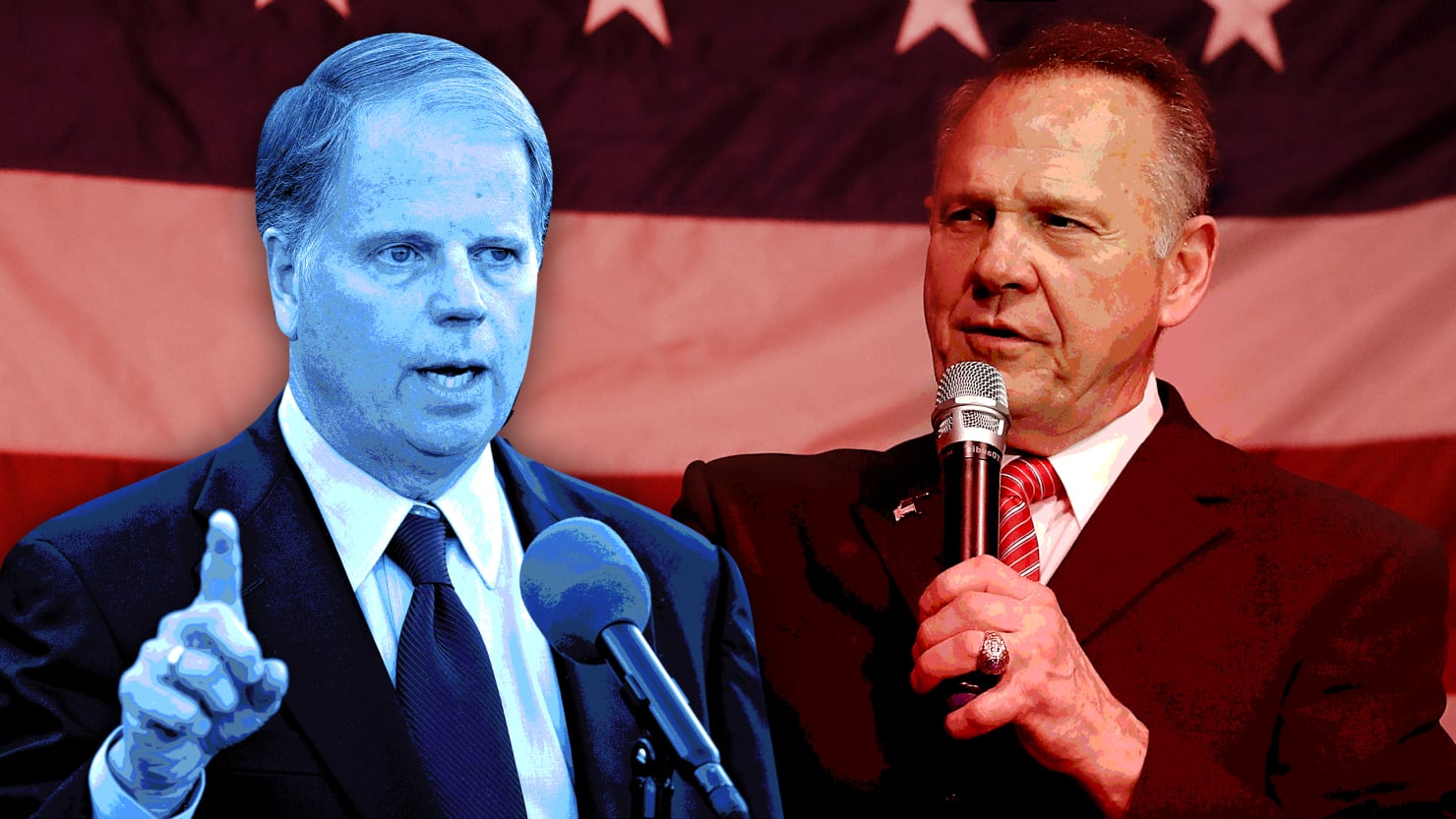December 12, 2017 brought about historic change in Alabama when Doug Jones narrowly defeated Roy Moore during the Alabama election. The election served to replace Senator Luther Strange, who was appointed to fill in Jeff Sessions’ seat in the Senate; Sessions was selected as U.S. Attorney General in early January of this year.
The special election was a nail-biter despite multiple sexual misconduct allegations against Moore, wherein three of the accusers claim Moore sexually assaulted them when the women were minors and he was in his thirties. Moore lost the election by only 1.5 percent, procuring 48.4 percent of Alabama voters’ unconditional approval.
Jones is the first Democrat to win one of Alabama’s Senatorial seats since 1992. Alabama is, evidently, a deeply dark red state with little tolerance for blue. Jones—someone with a total of zero sexual misconduct allegations against him—did not even technically reach a majority of votes, as he only received an unrounded 49.9 percent plurality.
[su_youtube url=”https://www.youtube.com/watch?v=0y6n4UIAbdM”]
The narrow margin of the election perfectly sums up Alabamans’ moral conflict: 48 percent of voters would rather have an alleged child predator represent them in Washington, D.C. than a Democrat. What should have been a vote for what is objectively right remained largely partisan save for 8 percent of Republican voters who voted for Jones, according to “The Washington Post’s” exit poll. Many Alabamans and the GOP (the party of family values, oh so ironically) are unsurprisingly critical of the Democratic winner.
President Trump openly and adamantly supported Moore after several weeks of passivity toward the election, claiming Alabama would choose the right candidate. He indirectly backed Moore in late November with tweets vilifying Jones as a “Schumer/Pelosi puppet” who “would be BAD!”
Just a week before the election, however, Trump professed his full-fledged endorsement for Moore, tweeting, “We need his vote on stopping crime, illegal immigration, Border Wall, Military, Pro Life, V.A., Judges 2nd Amendment and more. No to Jones, a Pelosi/Schumer Puppet!” Ignoring random and incorrect capitalizations, his reference to “Pro Life” is fascinating, even for the low standards Trump has set for himself.
He mentions the candidate’s position on abortion—a moral issue to many Americans—in spite of the sexual misconduct and child predation allegations that many women have made against Moore. With Trump’s track record, nevertheless, it isn’t entirely surprising that he backed Moore.
Another unsurprising move was his total recantation of his support for Moore, tweeting after the election, “I said Roy Moore will not be able to win the General Election. I was right!” A classic Trump maneuver that mirrors his response to the Virginia Gubernatorial election in October, his repudiation of Moore to prove his bigly smartness lacks originality at this point. Trump was not, however, the only Republican to wholeheartedly support an alleged child predator in order to pass bills that favor the GOP.
Counselor to the President Kellyanne Conway worried prior to the election that Doug Jones would ruin Congress’s prospects of passing Trump’s proposed tax bill. As a guest on “Fox and Friends,” she belabored her point that “Doug Jones is a vote against tax cuts; he’s weak on crime, and strong on raising taxes.” Conway’s desperate cry for Alabama Republicans to vote for Moore did not quite pay off, nor did it accurately portray Jones’s stance on taxes.
Though he won’t take office until January 3, 2018 and therefore likely won’t vote on the tax plan, the Senator-elect has expressed partiality for lower taxes for the middle class and corporations, despite Conway’s insistence that Jones was against tax cuts. He is, however, skeptical about claims that the bill would repair the $1 trillion national debt. Nevertheless, Jones’ mixed feelings about the tax plan reveal his moderate side in spite of Republican assertions that Jones is a far-left liberal. The newly elected senator has proven more than once since his election that he is not on the same ideological level as legislators like Senator Schumer or Senator Warren.
In an interview with “CNN’s” Jake Tapper less than a week after defeating Moore in Alabama, Jones noted that he does not think Trump should resign because of his manifold sexual misconduct allegations in the wake of Al Franken’s resignation for similar accusations. Jones said, “Those allegations were made before the [2016 Presidential] election. And so people had an opportunity to judge before that election. I think we need to move on and not get distracted by those issues. Let’s get on with the real issues that are facing the people of this country right now.”
Jones’s remarks are inconsistent with many Democrats’ opinions on the subject, including New Jersey Senator Cory Booker and New York Senator Kirsten Gillibrand, who have both openly called for Trump’s resignation post-Franken. Jones made it clear that sexual misconduct allegations against the president are a non-issue, despite those very issues helping him win a seat in Congress. The Senate-elect has kicked off his Senatorial career with sentiments that contradict, or at least stray from, many Democratic and liberal politicians’ stances. Regardless, his triumph over Moore illustrates Alabama voters’ desire to denounce repulsive behavior notwithstanding political party affiliations.
Jones’s recent comments about both Trump’s sexual misconduct allegations and the GOP tax plan demonstrate the one thing Alabama Republicans who voted for Moore don’t want to admit: Jones is a moderate, if not conservative, Democrat who will mesh well with most of their stances, aside from his party identification. Partisan ties are simply too strong—in Alabama and across the nation—for voters to overlook and instead pay attention to what candidates actually say. Since his victory, Jones has expressed relatively conservative viewpoints, but many Americans rely solely on heuristics to evaluate politicians, which allow them to judge a candidate or representative on his party and not on his policy positions.
Doug Jones’ narrow Senatorial victory exemplifies one of the main problems that American Democracy faces today, which is that citizens (including politicians) do not pay attention when it matters. Americans are so entranced by partisanship that policies take a back seat. It turns out that Jones is more moderate than any Republican disclosed during the campaign, but the only issue voters were concerned about was that he was a Democrat. 48.4 percent of voters disregarded Moore’s sexual misconduct accusations, an issue that should outweigh political partisanship.
Issues matter. Listening matters. Voters in thirty-three states have to keep this in mind during the 2018 Senate elections. One can only hope that decent candidates will run for the open Senate seats, but instead of relying on the unreliable partisan label, voters must do their homework. Jones and Moore perfectly sum up the fact that party identification doesn’t dictate someone’s ideology or character.

















